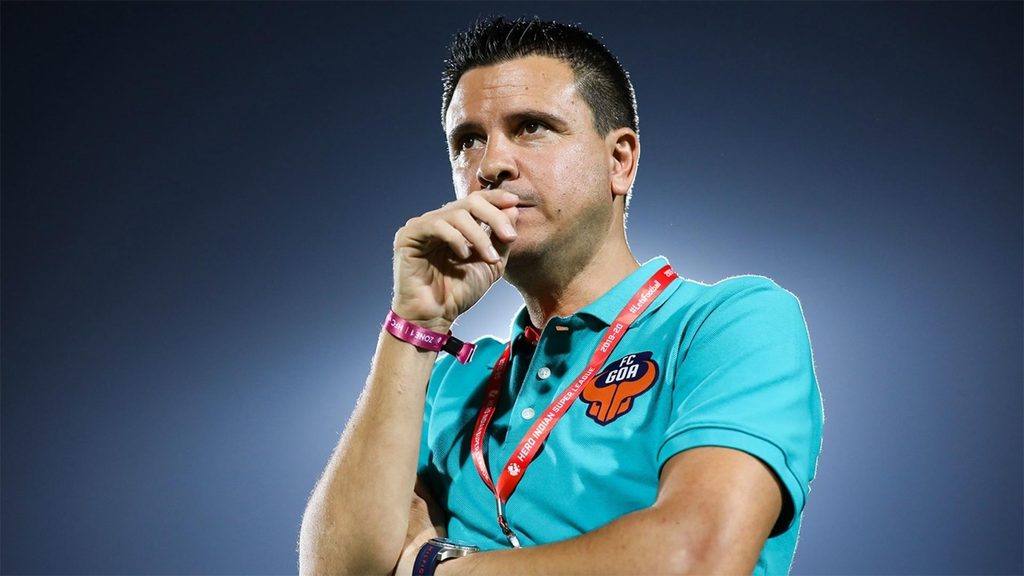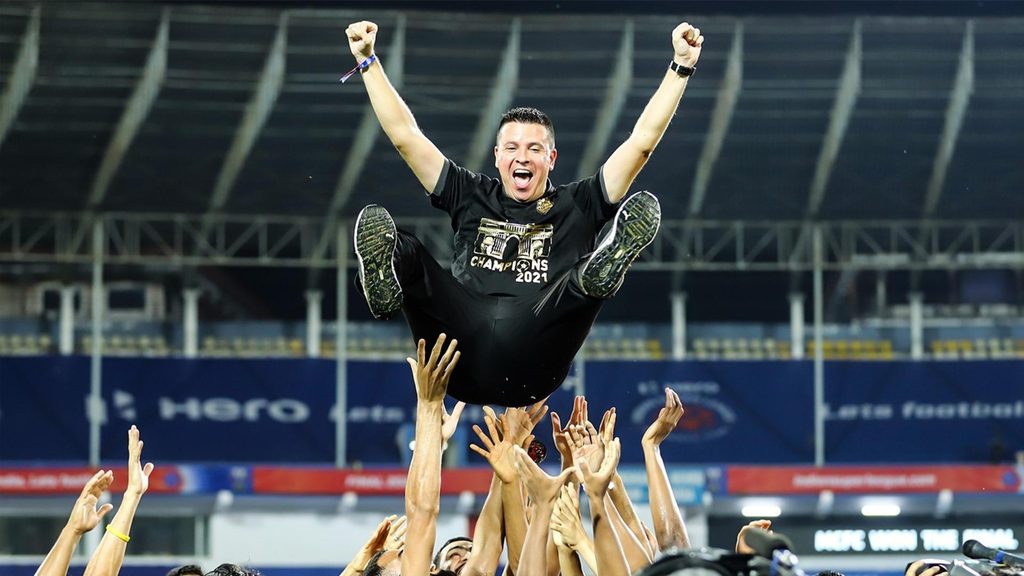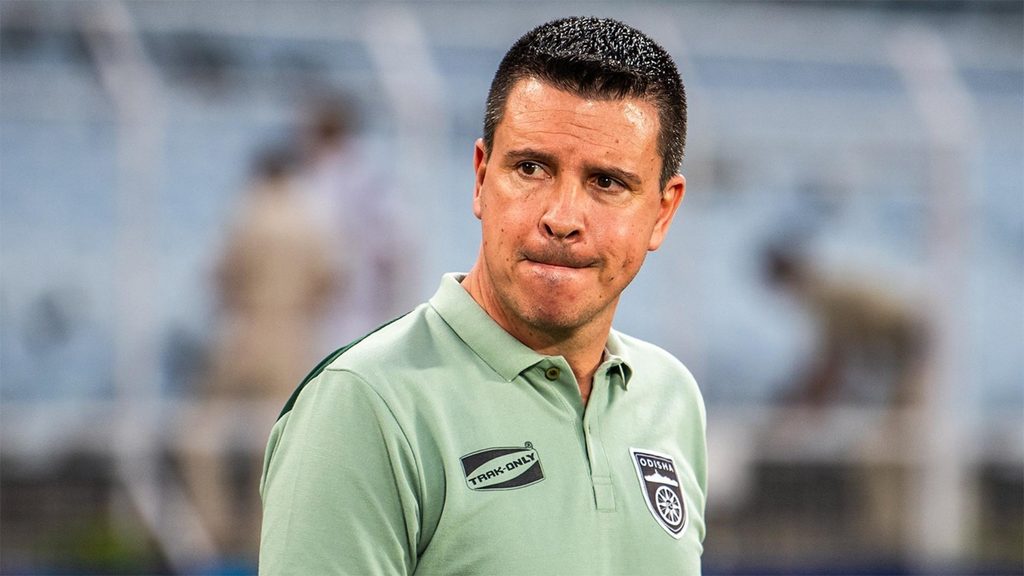Sergio Lobera: The visionary who redefined football in ISL
From FC Goa to Mumbai City FC and now Odisha FC, the Spaniard has built teams with identity, purpose and results.

In the ever-evolving landscape of the Indian Super League (ISL), where tactics have evolved and clubs constantly seek the magic formula for success, one name has stood the test of time: Sergio Lobera. The Spaniard has become synonymous with style, substance and silverware.
With stints at FC Goa, Mumbai City FC and now Odisha FC, Lobera’s name is etched in ISL folklore as not just as a successful head coach, but as a pioneer who changed the way Indian football is played.
Here’s a closer look at his journey and what made Lobera one of the most successful and respected head coaches in ISL history.
The FC Goa era

Sergio Lobera arrived in India ahead of the 2017-18 ISL season, taking charge of FC Goa. At the time, the club had a solid foundation, but underwhelming results in the previous campaign meant a fresh direction was needed.
Lobera entered with a blueprint that was bold, attacking and heavily inspired by his roots in Spanish football. A former assistant to Tito Vilanova at FC Barcelona, Lobera brought with him the ideals of possession-based football that focused on ball circulation and positional play. But while many head coaches spoke about philosophy, Lobera backed it with tangible results.
Within weeks, FC Goa were transformed from a solid outfit to arguably the most exciting team in the league. With players like Ferran Corominas, Ahmed Jahouh and Edu Bedia at the helm, the Gaurs topped the scoring charts for three seasons in a row during Lobera’s time in charge.
After reaching the semis during the 2017-18 season, Lobera’s side reached the ISL final the following season, narrowly losing to Bengaluru FC. But the foundations were firmly in place. In the 2019-20 season, FC Goa finished top of the league to win the Shield, a first in the club’s history and became the first Indian club to qualify for the AFC Champions League group stage.
Lobera’s ability to work with Indian players was equally important. He helped elevate the games of players like Mandar Rao Dessai, Seriton Fernandes, Brandon Fernandes and Jackichand Singh among others, creating a strong domestic core that complemented his foreign stars. FC Goa under Lobera wasn’t just a winning team, it was a team fans loved to watch.
Despite parting ways with the club just before the playoffs in 2020, Lobera had already cemented his status as a transformative figure in Indian football.
The iconic Mumbai City FC chapter

If FC Goa was about laying the foundation, Mumbai City FC was where Sergio Lobera proved he could marry style with silverware.
Taking charge ahead of the 2020-21 season, Lobera was handed the reins to a revamped Mumbai City FC side. Backed by the City Football Group, he was reunited with several key figures from his FC Goa days including Hugo Boumous, Mourtada Fall, Ahmed Jahouh and Mandar Rao Dessai to name a few.
The result was arguably the most dominant ISL campaign in history. Mumbai City FC topped the league table, clinched the Shield and then went on to win the ISL Cup, becoming the first club in ISL history to do the double.
What set that team apart was how effective they were at both ends of the pitch. Mumbai City FC played expansive, attacking football which were hallmarks of Lobera’s philosophy but were also defensively resolute and structured. The Islanders netted a league-high tally of 35 goals that campaign while conceding 18 goals, the second fewest.
For Lobera, this was not just redemption for the 2018-19 final loss but also validation. He had now built two top-tier sides in the league and delivered silverware in style.
Making his mark at Odisha FC

Lobera returned to the league in 2023, this time taking charge of Odisha FC. At the time, Odisha FC proved they were a side with potential but often struggled. They had made the playoffs in 2022-23 but needed to take the next step.
Lobera’s arrival instantly lifted the club’s stature. His first task was to build a team that could compete with the league’s best and more importantly, sustain that level. He once again leaned on familiar lieutenants, Ahmed Jahouh and Mourtada Fall, who followed him to Odisha FC, forming the spine of an experienced squad.
In typical Lobera fashion, Odisha FC quickly developed a brand of football that was possession-heavy, attack-minded and extremely watchable. The club didn’t just collect points but began to control matches. The Juggernauts qualified for the playoffs again and this time reached the ISL semi-finals for the first time in their history.
The run included an impressive unbeaten stretch at home. There was also visible improvement in the performances of Indian players like Isak Vanlalruatfela, Jerry Mawihmingthanga, Amey Ranawade among others.
Odisha FC narrowly missed out on the playoffs in the 2024-25 season, marking the first time a Sergio Lobera-coached team failed to qualify for the knockouts. The Kalinga Warriors remained in contention until the very last league game. Their fate, however, rested on Mumbai City FC losing, which didn’t go their way.
But Lobera once again proved that his teams are defined not by standout players but by his philosophy and system which consistently brings the best out of everyone.
A legacy still in progress
Lobera’s success in the ISL hasn’t been just about silverware but it has been about doing things with consistency, style and purpose. Across three different clubs, he’s built teams that not only win but play with a clear identity.
His philosophy is simple yet effective: control possession, play attacking football and stay organised. Be it FC Goa, Mumbai City FC, or now Odisha FC - his teams have played with intent and confidence.
Lobera has also got the best out of his players, especially Indian talent. From transforming roles to building trust, he’s helped many grow under his guidance. At the same time, he’s stuck with his tactics, not making adjustments based on opposition or the situation.
But perhaps his biggest strength is building a strong team culture. Everyone knows their role and there’s a clear system in place. And when it has been about rebuilding a squad, Lobera has brought structure and belief.
With three different clubs, multiple silverwares and a tactical identity that continues to influence others, Lobera’s ISL journey has already left a lasting legacy. One of the respected head coaches in the league, the Spaniard has changed the conversation around how Indian clubs should play. And given what he has achieved at three different clubs, Lobera’s influence will be felt for years to come.

























